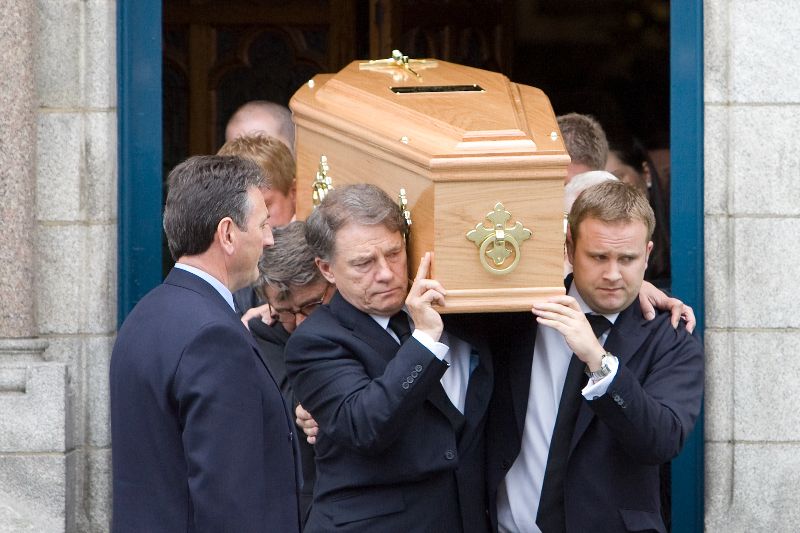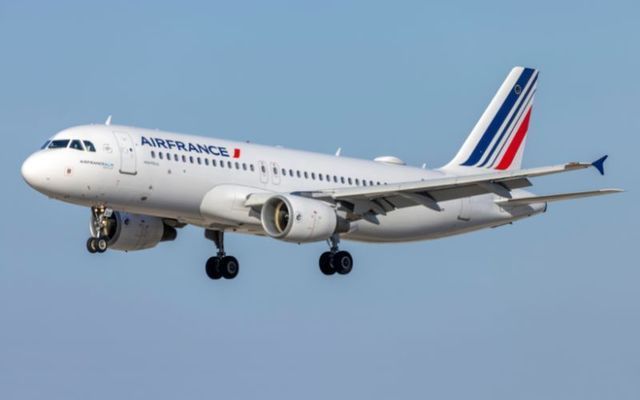A French court has cleared Air France and Airbus of corporate involuntary manslaughter for the 2009 crash off the coast of Brazil that killed all 228 people on board, including three Irish passengers.
Irish doctors Aisling Butler from Co Tipperary, Jane Deasy from Dublin, and Eithne Walls from Co Down were among the people killed when flight AF447 crashed during an equatorial storm on June 1, 2009, while en route to Paris from Rio de Janeiro.
The three Irish women were close friends who had studied medicine together at Trinity College, The Belfast Telegraph reports. They were returning from a holiday when the plane came down.
Families of the 228 people who died in the crash campaigned for a trial for years, leading to France's first-ever trial for corporate involuntary manslaughter. Both Air France and Airbus pleaded not guilty to the charges.
"A probable causal link isn't sufficient to characterize an offense," Judge Sylvie Daunis said during her judgment in Paris on Monday, marking the end of France's first-ever corporate manslaughter trial.
In the wake of the verdict, a spokesperson for Air France said: "Deeply saddened by this terrible accident, Air France will always remember the victims and wishes to express its heartfelt sympathy to their loved ones.
"The company also wishes to reaffirm its continued trust in all of its pilots and flight crews and reiterates that the safety of its customers and crews is its absolute priority."
An Airbus spokesperson further said: "We would like to express our sympathy to those who lost a family member, a loved one, a colleague and everyone touched by this tragedy.
"Airbus reaffirms the full commitment of the company and all its employees to keep prioritizing a safety-first culture across the company and the aviation sector."
The Airbus A330-200 aircraft was en-route to Paris on an overnight flight from Rio de Janeiro on June 1, 2009, when it disappeared off the radar in the middle of a high-altitude thunderstorm over the Atlantic Ocean. It took just four minutes and 24 seconds for the plane to fall 11,500 meters.
Although debris was spotted floating on the ocean days after the crash, it took two years to find the plane and the black box recordings more than 13,000 feet beneath the surface.
The crash is believed to have been caused by the plane's speed sensors, known as the pitot tubes, which iced up in the storm and turned off the autopilot.
Investigators found that the flight's pilots responded clumsily to the malfunctioning pitot tubes, lurching into a freefall without responding to stall alerts.
However, the trial also heard that Air France and Airbus had both acknowledged problems with the pitot tubes before the flight took place.
The remains of Aisling Butler and Eithne Walls were never recovered.
Earlier this year, Butler's father John told RTE Primetime that he was led to believe his daughter's body had been recovered after the tragedy.
"We were led to believe that we should get a coffin," John said in January. "That was desperate."

July 10, 2009: The funeral of Dr. Jane Deasy who died in an Air France plane crash, taking place in the Church of the Holy Name in Ranelagh in Dublin. (RollingNews.ie)
Monday's ruling follows a historic two-month trial, which took place at the end of 2022.
During the trial, public prosecutors admitted that it was impossible to prove that either Air France or Airbus was to blame for the crash and suggested that both companies should be cleared.
Air France was accused of not implementing the correct training in the event of the pitot tubes freezing, while Airbus was accused of knowing that the model of pitot tubes used on flight AF447 was faulty.
Both companies contended that pilot error was responsible for the crash.




Comments